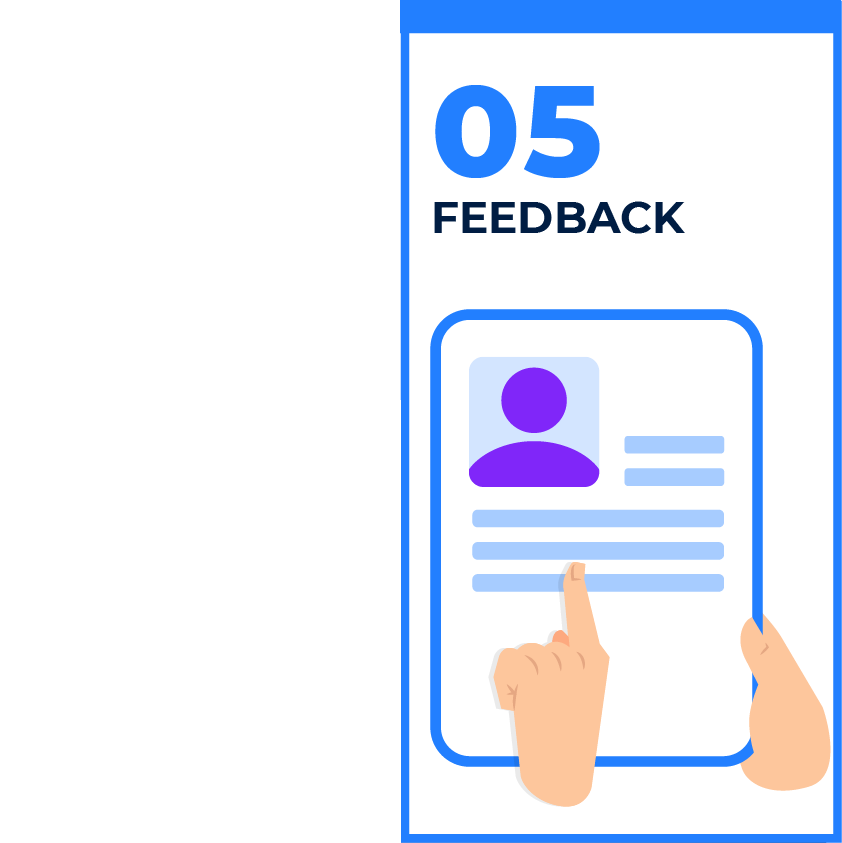
Poor onboarding process
Of those who don’t hit their first performance goals, 50% did not have a formal onboarding process.
- Urbanbound.Only 12% of employees agree that their company does a good job of onboarding new employees.
- Gallup.Well-structured onboarding process:
54% of companies with onboarding programs reported higher employee engagement, a key factor in employee productivity.
- SHRM77% of employees who had a formal onboarding process hit their first performance goals.
- Urbanbound
Annual goal setting
Only 7% of organizations embed goal revision & management into the flow of work
- SHRM54% of organizations report their employees only review or revise their goals once per year, if at all.
- DeloitteContinuous goal setting
Over 50% of companies where goals are reviewed & redefined each month are in the top quartile in terms of financial performance.
- Harvard Business ReviewHigh-performing organizations are 4.8 times more likely to set goals quarterly and 3.1 times more likely to update goals at least quarterly than low-performing organizations
- DeloitteEmployees whose managers involve them in goal setting are 3.6 times more likely to be engaged.
- Gallup
Infrequent or non-existent 1:1 meetings
Employees of managers who don’t have 1:1 meetings are 4 times as likely to be disengaged.
- Harvard Business Review35% of employees have to wait more than 3 months to get feedback from their manager.
- OfficevibeOngoing Check Ins
Employees that have regular 1:1 meetings with their managers are likely to be 3x more engaged.
- Urbanbound96% of employees believe that receiving feedback regularly is a good thing.
- Hygger
Stunted development possibilities
Only 16% of employees indicate that they have ongoing conversations with their managers about their careers.
- Manpower Group52% of voluntary exiting employees say their manager or organization could have done something to prevent them from leaving their job.
- Gallup51% said that in the three months before their departure neither their manager nor any other company leader had reached out to them about their job satisfaction or their future.
- GallupEmbracing a growth mindset
2/3 of individual performance drivers are tied to career conversations.
- Manpower Group94% of employees stated that they would stay with a company longer if the company invested in their individual careers.
- LinkedIn76% of employees believe that if career conversations were more regular, they’d be more likely to look for opportunities for career growth at their current employer.
- Manpower Group
Unclear feedback and lack of recognition
44% of managers don’t give enough feedback.
- The Predictive IndexWhile more than 75% of employees believe that feedback is valuable, less than 30% said they receive it.
- PwC69% of employees say they would work harder if they felt their efforts were better recognized.
- PwC360° Feedback and Recognition
Nearly 60% of employees would like feedback on a daily or weekly basis, and this number grows to 72% for employees under 30.
- PwC89% of HR leaders agree that ongoing peer feedback and check-ins have a positive impact on their organizations.
- SHRM44% of employees surveyed report that when they are provided a simple tool to do so, they will provide peer recognition on an ongoing basis.
- Great Place to Work
Turn backward-looking annual evaluations into fact-based performance discussions
Less than 50% of all respondents think they are evaluated in a transparent way; with only 47% thinking it’s fair and only 38% believe that how they are evaluated helps them develop.
- BersinThe average manager spends 210 hours a year on Performance Management related activities, so this once-a-year cycle doesn’t really save time or money.
- Washington PostMost annual reviews often rely on the memory of managers, which can lead to biased reviews and missed opportunities for growth, making the conversation less productive than it should be.
- Harvard Business Review
Unclear career opportunities
57% of employees believe that they don’t have any career advancement opportunities. Employees feel like they don’t have enough autonomy, they’re not mastering their skills, and they don’t fully feel a sense of purpose.
- Work InstituteLack of growth and career development is the number 1 reason why employees quit, with a 170% increase since 2010.
- Work InstituteMore than 70% of high-retention-risk employees believe they'll be forced to leave their organization to advance their career.
- LinkedInExpanding career opportunities
94% of employees say that they would stay at a company longer if it simply invested in helping them learn and grow.
- LinkedIn87% of millennials rate professional career growth and developmental opportunities as important to them in a job.
- GallupInternal hiring is 6 times more effective than all other sources of hiring.
- Jobvite


































